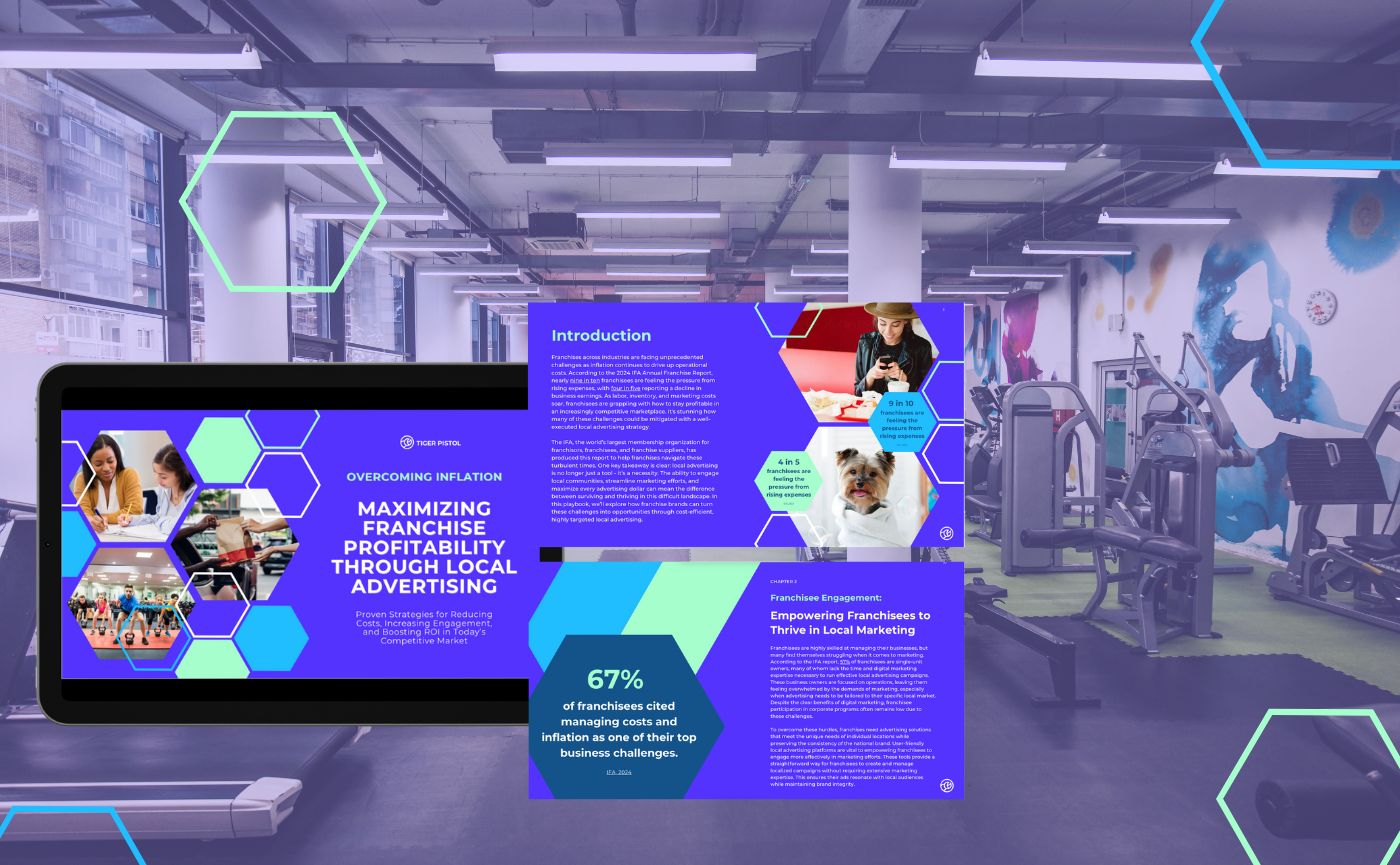Data Sharing & Local Advertising: Unlock the Full Potential of QSR Loyalty Programs
Loyalty programs are essential for quick-service restaurant (QSR) brands, driving customer retention and boosting spending. However, many brands miss opportunities by not sharing crucial first-party loyalty data with their franchisees—the frontline of customer engagement. By securely sharing this data, QSR brands can empower franchisees to create personalized ad experiences that build lasting customer loyalty.
Creating Custom and Lookalike Audiences
Sharing loyalty data allows franchisees to build custom and lookalike audiences. Custom audiences target loyalty members with relevant offers, such as reminders of unredeemed points, promotions for double or triple points, or new program perks. These personalized campaigns encourage repeat purchases and strengthen the customer-franchise connection.
Lookalike audiences extend reach to potential customers who share traits with loyal patrons. By targeting these high-value individuals, franchisees can improve ad efficiency and attract new customers at a lower cost. This data-driven approach gives even franchisees with limited digital ad experience a head start in creating effective local campaigns.
Secure Data Integration for Seamless Advertising
Top local ad platforms provide APIs for seamless integration with loyalty vendors, CRM systems, and coupon providers, enabling franchisees to leverage audience data without directly accessing personal details. This secure approach allows for the creation of lookalike audiences and data-driven ad strategies without exposing sensitive customer information. Automation ensures that campaigns stay relevant and up-to-date, freeing franchisees to focus on customer service rather than ad creation.
The Virtuous Cycle of Data Sharing
Sharing loyalty data with franchisees creates a feedback loop. When franchisees run successful local campaigns, they generate insights about customer preferences and behaviors. These insights inform corporate marketers, helping brands continually refine loyalty programs, build program membership, and optimize marketing campaigns, creating a cycle of improvement that benefits both franchisees and the brand.
Empowering Franchisees with Loyalty Data
By securely making loyalty data available to franchisees, QSR brands can unlock the full potential of their loyalty programs. Franchisees gain the ability to access custom and lookalike audiences for local advertising, enabling them to run highly targeted campaigns that increase foot traffic, drive point redemption, and enhance customer engagement. Integrated data sources further improve targeting precision, making these campaigns even more effective.
Learn more about harnessing your loyalty data for impactful local advertising. Download our playbook The Next Step in QSR Loyalty Programs.
Discover how Tiger Pistol can power your local advertising success.
Related Posts
Balancing Brand Control and Franchisee Autonomy with Collaborative Social Advertising
Make the Most of Your Advertising Opportunities with a Collaborative Approach Recently, Tiger Pistol CEO Paul Elliott penned an article for Global Franchise’s North America Report. Elliott discusses the struggle brands face in retaining control and maintaining consistency while giving franchisee owners freedom in their social advertising efforts.
The Overlooked Importance of Local Social Advertising in Comprehensive Marketing Solutions
As brands pivot towards more efficient and streamlined marketing tools, all-in-one local marketing platforms have emerged as the go-to solution. Their appeal is undeniable. Offering a suite of tools and functionalities under a single umbrella, they promise to simplify the complex world of local advertising. The Overlooked Void: Local Social Advertising Yet, ben
Tiger Pistol’s New Playbook Helps Franchises Overcome Inflation and Drive Profitability Through Local Advertising
Providing Franchises with Cost-Saving Strategies, “Overcoming Inflation: A Playbook for Maximizing Franchise Profitability Through Local Advertising” Offers Proven Methods for Reducing Costs, Increasing Engagement, and Boosting ROI Tiger Pistol, the most advanced local advertising platform, today announced the release of its latest playbook: “Overcoming I
Tiger Pistol Expands Partnership with The Wendy’s Company to Empower Franchisees with TikTok Advertising
In a strategic move to enhance local advertising efforts and engage with modern consumers, Tiger Pistol, the premier local advertising platform advertising platform, and The Wendy’s Company are thrilled to announce the expansion of their partnership to include TikTok advertising. See the simplicity, scale, and performance of the Tiger Pistol Local Advertisi





